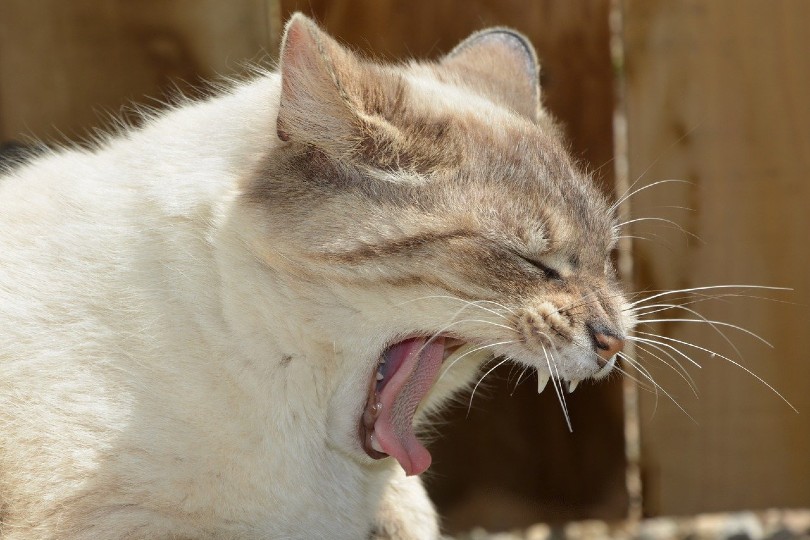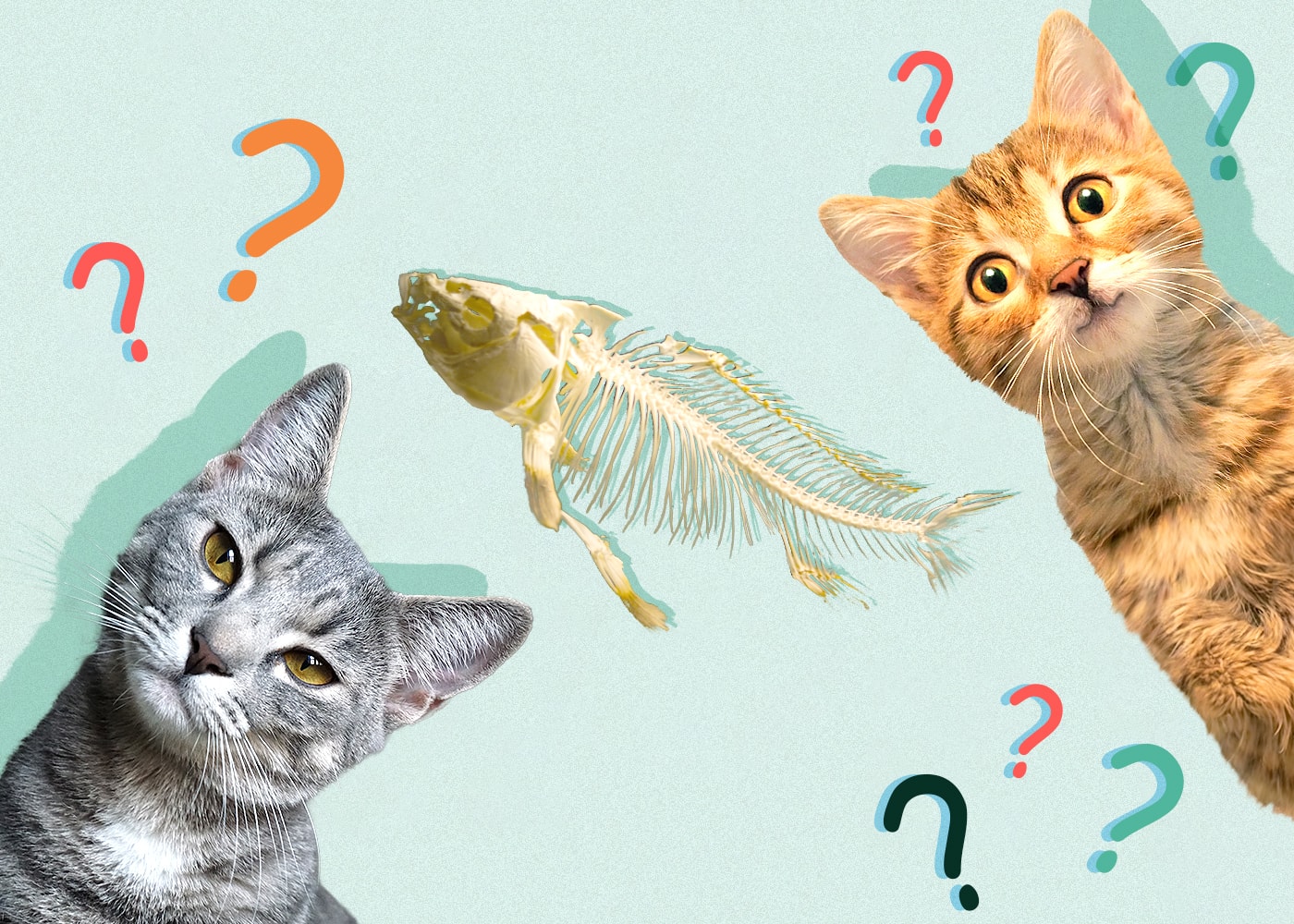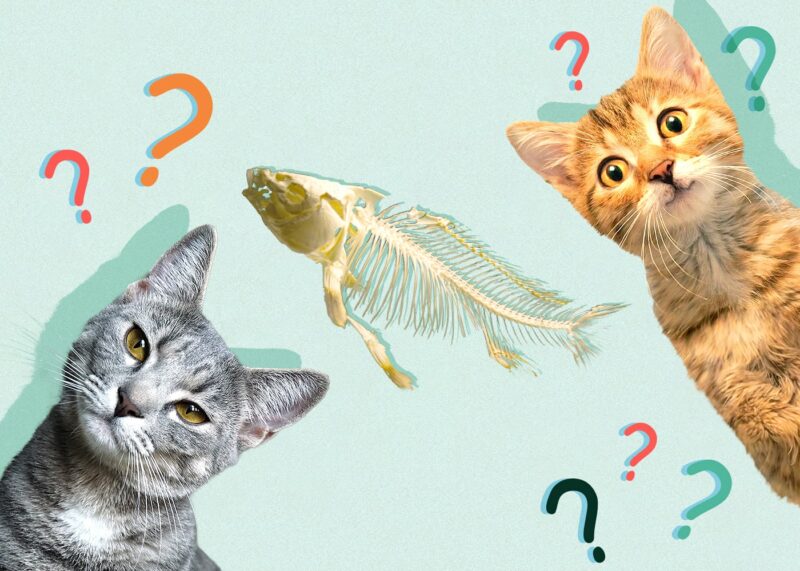Cats are obligate carnivores. In the wild, they eat a good variety of small prey, depending on availability, and they make the most of their catch by eating all of their quarry. Prey are usually small mammals and birds, and it is considered very rare for wild and domestic cats to capture fish. On the other hand, domestic cats commonly consume fish either as an ingredient on commercial pet food or cooked at home. But, can cats eat fish bones?
While fish bones are not toxic to them, cats should not be fed fish bones since it is considered unsafe. Fish bones can be dangerous and may lead to choking and other problems.
The Dangers of Fish Bones
Both raw and cooked fish bones pose a risk to cats. When fish bones are not chewed and swallowed whole, they can get stuck in your cat’s mouth, throat, esophagus, or anywhere in their digestive tract. They are usually sharp and thin and, in such a scenario, the fish bone can get lodged or perforate the tissues, causing severe consequences. Bigger bones can get lodged in the throat and cause choking. Therefore, you should avoid feeding bones to your cat.
Small Fish First
The size of fish bones depends on the size of the fish. Large fish have large bones, which can easily get lodged in the throat. Choose a fish that is size appropriate for your cat, and only feed smaller fish to your cat. Try your best to debone the fish, although your cat might be able to handle any tiny bones found in, for example, sardines and mackerel better than those found in tuna.

Dinner Supervision
When feeding your cat anything new, it is a good idea to supervise their first meal. This is especially true if you feed meat or fish containing bones. Even if it is somewhat minimal, there is always a risk that a bone can break, get stuck, or become lodged in their digestive tract.
What to Do if Your Cat Is Choking
If your cat is choking or you suspect they are, the first step is to determine if there is something blocking their airway and attempt to remove it. If you are unsure whether your cat is choking on a fishbone, gently open their jaws and take a look. You can gently move your index finger around the mouth to find any blockage, but make sure that you do not push any obstruction farther down the throat.
If you are unable to remove the blockage, and you are sure your cat is unable to breathe, you may have to perform a cat version of the Heimlich maneuver while on your way to the vet. Even if you successfully remove the bone or other obstruction, you should always take your cat to an emergency veterinary clinic as soon as possible.

Feeding Fish to Your Cats
While feral cats eat whatever prey they can catch, domestic cats are quite different, and they rely on what we feed them. Cats are often portrayed as staunch fish eaters. In reality, however, there are risks associated with feeding fish to your cats in certain ways.
- Raw fish contains high levels of an enzyme that destroys vitamin B1 (thiamine) which can cause a severe condition called thiamine deficiency. For this reason, you should not feed your cat raw fish.
- Tuna and other predatory fish already have reasonable levels of mercury in their bodies. They also eat smaller fish, which further increases these levels. Tuna is known to have some of the highest mercury levels and is not an ideal food for your cat to eat on a regular basis.
Final Thoughts
We know that fatty fish is a great source of omega-3 fatty acids, which are essential to good feline health. However, there are some dangers to feeding fish to your cats, and the best way to avoid these is to always feed cooked fish and to limit the type and amount of fish you give to your feline friend.
If you wish to feed fish to your cat, try to remove the bones before offering it to your cat. Both raw and cooked fish bones are unsafe for your cat and can become lodged in the mouth, throat, or anywhere in the digestive tract, causing severe damage to your kitty.
Related Read:












